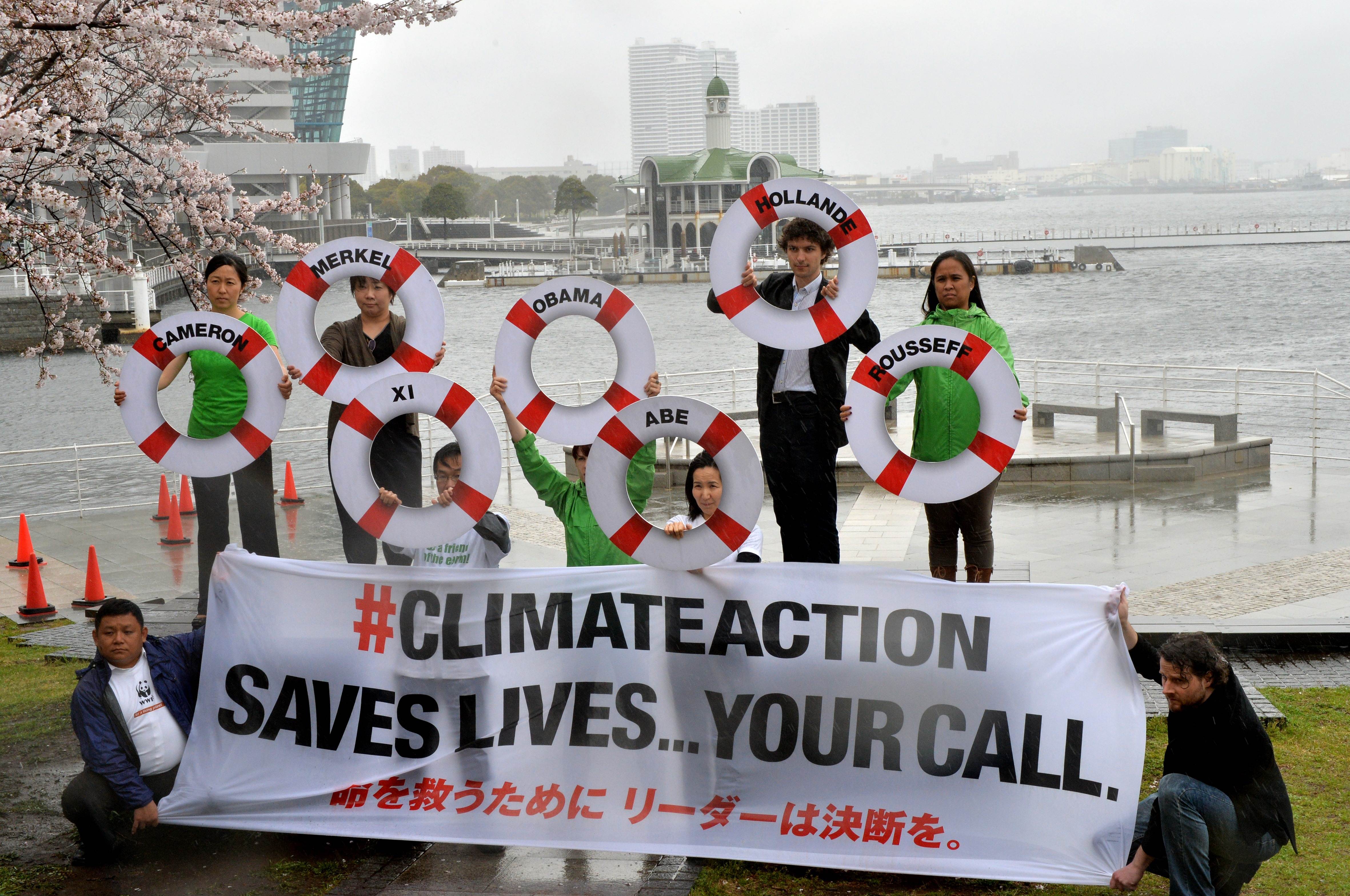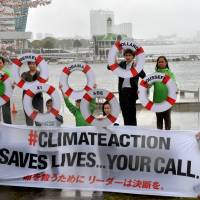Climate change can indirectly increase the likelihood of violent conflict by exacerbating risk factors such as poverty and economic shocks, a U.N. scientific body warned Monday.
After six days of talks through Sunday in Yokohama, the Intergovernmental Panel on Climate Change (IPCC) released a report assessing the impacts of climate change on human and natural systems, options for adaptation and opportunities for the future.
"Climate change over the 21st century is projected to reduce renewable surface water and groundwater resources significantly in most dry subtropical regions, intensifying competition for water," the IPCC said.
Climate change is also expected to "increase displacement of people," the panel said. "Some transboundary impacts of climate change, such as changes in sea ice, shared water resources and pelagic fish stocks, have the potential to increase rivalry among states."
Some 500 scientists and government representatives from around the world gathered in Yokohama to work on the report.
A press conference was held Monday morning to wrap up the influential panel's plenary session, the first in Japan.
The IPCC's fifth assessment report will be composed of three working group reports and a synthesis report. One is due out in April after another plenary meeting in Berlin, and the synthesis report will be released in October in Copenhagen.
The IPCC concluded last September in Stockholm that human activity is the dominant cause of global warming since the mid-20th century.
In Yokohama, the IPCC also discussed how impacts and risks related to climate change can be reduced and managed through adaptation and mitigation.
"Projected global temperature increase over the next few decades is similar across emission scenarios (regardless of carbon dioxide emissions)," the panel said. "During this near-term period, risks will evolve as socioeconomic trends interact with the changing climate."
"In the second half of the 21st century and beyond, global temperature increase diverges across emission scenarios. For this longer-term, near-term and longer-term adaptation and mitigation, as well as development pathways, will determine the risks of climate change."
The IPCC also said it expects the likelihood of severe, pervasive and irreversible impacts to increase depending on the magnitude of global warming.
World leaders have agreed it will be dangerous to allow global temperatures to rise more than 2 degrees above preindustrial levels and have set the so-called 2-degree target.
"Some risks of climate change are considerable at 1 or 2 C above preindustrial level. Global climate change risks are high to very high with global mean temperature increase of 4 C or more above preindustrial levels," the IPCC said.
Global climate change risks "include severe and widespread impacts on unique and threatened systems, substantial species extinction, large risks to global and regional food security; and the combination of high temperature and humidity compromising normal human activities, including growing food or working outdoors in some areas for parts of the year," the panel said.
The international community is working to reach a new anti-global warming pact by 2015 to replace the 1997 Kyoto Protocol, which is widely seen as ineffective without the participation of the world's two biggest carbon emitters — China and the United States.
The IPCC has released four comprehensive assessment reports since it was formed in 1988 to help policymakers, with the last one in 2007.




